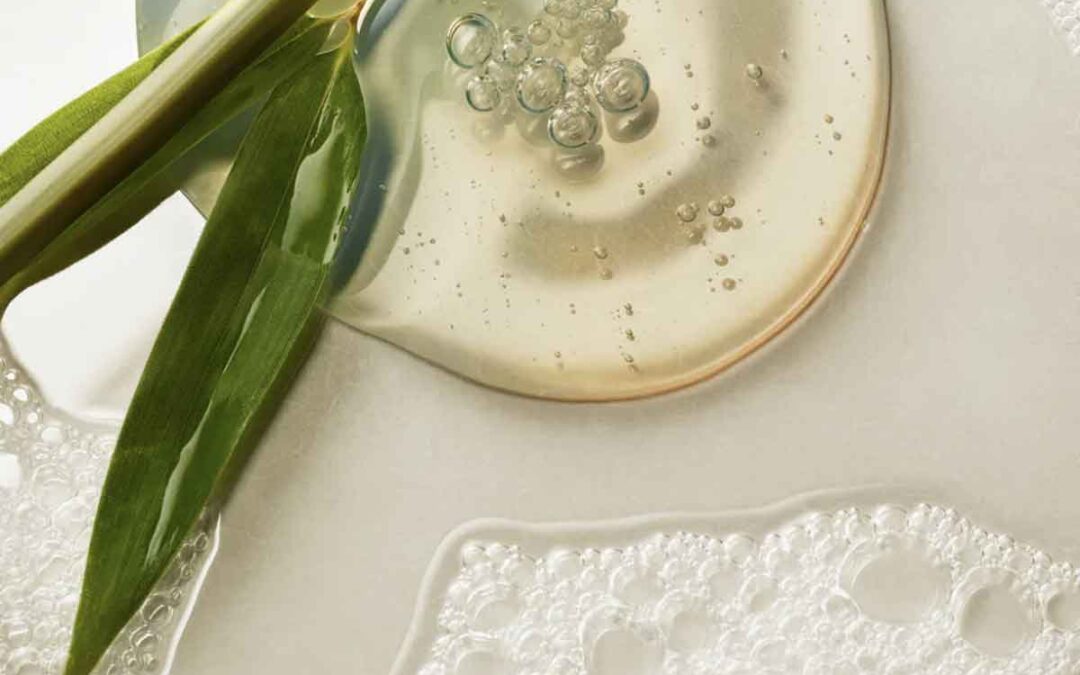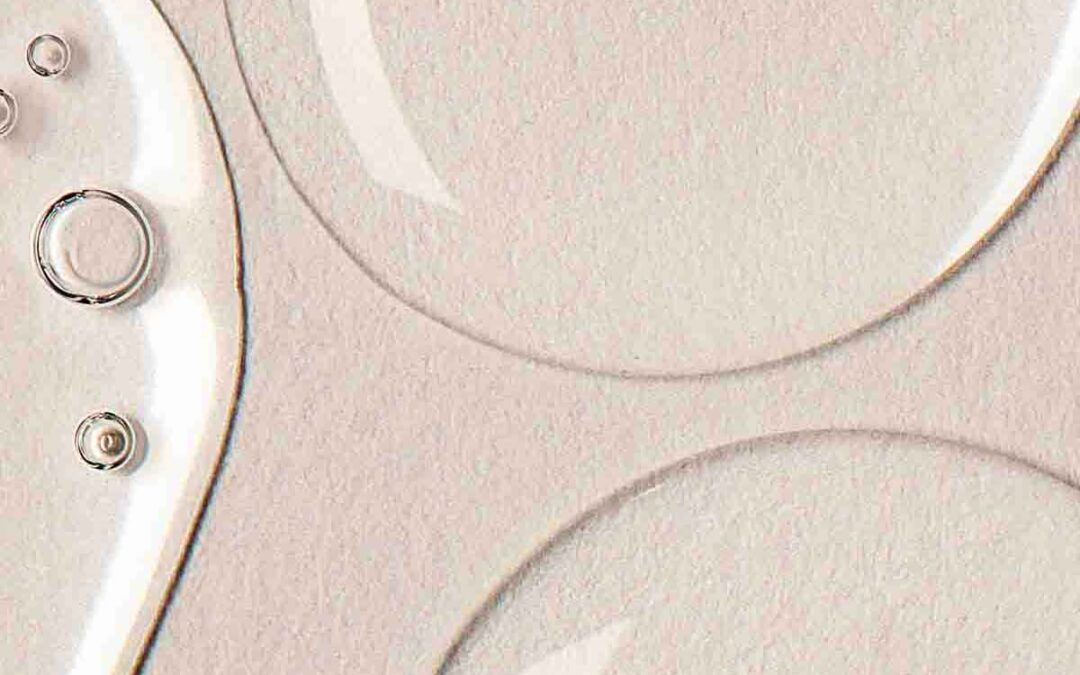Today, I want to touch on an important topic: going green. Did you know that the skincare products we buy substantially impact our carbon footprint? As the founder of Fields of Yarrow, a green skincare company, I’ve done the research, and I want to talk to you about the rise of sustainable skincare and why it matters so much.
Every morning after I wake up, I go to the kitchen and turn on the news while I wait for my family to come down for breakfast. The other day, my husband asked me to turn it off, “it’s depressing”- he said. He’s right; it feels like the world is burning (literally) while I make eggs benedict for my family. I can see that my husband is not the only one that sees this.
Governments are dictating new policies, people are demanding green initiatives and big international brands are starting to make sustainable promises, but how did this start? And, more importantly, is it enough?
In recent years, there has been a significant shift in the beauty industry towards sustainable skincare, with a growing emphasis on natural, organic, cruelty-free and eco-friendly products. Thanks to the development of technology and the contributions of notable sites such as the INCI Decoder, we have greater access to product information. Now, we can understand all the chemical components written on the labels, and the manufacturers are facing ever-growing pressure to change their conventional production methods. This has pushed the industry to embrace greener, cleaner, and non-toxic manufacturing practices.
A Short History of Sustainable Skincare
Modern skincare is easily accessible; we can buy a little plastic bottle with a pump in many stores around us. We no longer need to go to a store; we can easily place an order online and receive the products directly on our doorstep. These very convenient methods to acquire skincare products were not available in ancient times, so how did people from centuries ago look amazing? How did they take care of their skin when no big cosmetic companies would ship them to their house? Easy, they used nature.
Our ancestors learned how to harvest the powerful components nature gives us and use them to their advantage. Ancient Egyptians harnessed the powers of moringa and sesame oil.
We have countless examples of how our ancestors used nature for their benefit, so what changed?
Like those before us, there’s a lot to learn and discover when it comes to the Benefits of Using Natural Ingredients in Your Daily Skincare Routine.
The Industrial Revolution allowed humanity to speed up product development and pushed us through advanced product innovation. Estée Lauder launched their cosmetics in New York in 1946, and competition followed fast. It became necessary to increase the bottom line to create value for the shareholders and survive in this new, fast-paced marketplace. And as that became a necessity, nature was forgotten. It was cheaper to develop chemical compounds in a lab than it was to plant, wait, and harvest them. This is how synthetic compounds found their way into our skincare.
If you think about it, trash is an error in human design. In nature, there is no waste. Everything gets recycled and reused for the benefit of the environment; this was until humans took charge. When I look at any product, I see package waste. When I see a picture of a landfill, I see brands. Brands that are responsible for all that waste. Human consumption patterns have pushed us to a world where microplastics are inside of us.
I am not the only one who shivers whenever I spot this fundamental flaw in our design. Millions of people are becoming more and more aware of their actions and the impact they have. One of the primary factors contributing to the growth of sustainable skincare is the desire for transparency in product ingredients. Consumers now rightfully demand cleaner, more ethically sourced formulations, free from harmful chemicals and excessive packaging. This pushes governments to draft new laws and forces companies to change their manufacturing process.
We will not tolerate anything less because anything less will harm us in the long run.



5 Tips To Reduce Waste In Your Skincare Routine
You can start reducing your waste and enter the green skincare movement in many ways. The five things I always do to ensure minimum waste in my house are:
- Eliminate single-use. Anything that I can only use once, I don’t use. Between cotton pads, makeup wipes, and face masks, you would be surprised how many single-use items are used in a skincare routine. I changed makeup wipes for my daily revitalizing cleansing oil and cotton pads by bamboo-based reusable cotton pads.
- Watch out for the ingredients. I always buy from brands (such as Fields of Yarrow) that I know use ethically sourced ingredients. This means they protect and care for the environments where they farm the ingredients they need without over-exploiting it. I also look for vegan ingredients that generally require less water to be produced.
- Buy naked products or at least products with less packaging. Packaging does not affect the quality of your beauty product, so you might as well buy from brands that use eco-friendly packaging. You support them, they support the planet.
- Repurpose empty containers. Try to find another purpose for what you’d normally throw away. Glass jars and bottles can be used to store jewelry or as dividers inside drawers. Serum droppers are great for measuring essential oils. Don’t be scared, get creative!
- Watch out for your water consumption. It sounds easy, but we take running water for granted. I have a glass next to my sink, filling it up when I start my skincare routine. After that, I try not to open the tap anymore. It has even become a fun challenge for me, creatively looking for ways to get the same result using less water.
These five tips are just a few of the many things you can do to reduce your carbon footprint. If you need to do more for our planet, learn How to Transition to a Clean Beauty Routine.



Fields of Yarrow’s Commitment to Sustainability
From its foundation, Fields of Yarrow was always conceived as a clean brand. Our ethos revolves around believing that beauty can be achieved without compromising the environment. By harnessing the power of nature, we create effective products that nurture the skin while promoting eco-consciousness. We love beautiful, simple, effective, and clean products. We also love our planet and communities and strive to leave things a little better than we found.
We are committed to using energy from renewable sources and limiting our carbon footprint. All our boxes are part of the PRINT GREEN program, meaning we are petroleum-based ink-free (instead, we use soy-based ink) and therefore minimize environmental damage. We are proud to offer sustainable and recyclable packaging. From our formulas and packaging to our shipping practices and manufacturing partners, we are committed to being climate-conscious.
We also plant a tree for every online purchase we receive in collaboration with One Tree Planted. By planting trees, we help clean the air we breathe, filter the water we drink, and provide habitat to over 80% of the world’s terrestrial biodiversity.
And there is still plenty to be done. We know it, and we are working towards it. Now it’s up to you. Will you join the green skincare movement? Together, we can protect our skin, our environment, and the natural wonders that make life beautiful.
FAQs
What is the concept of "Going Green" in the context of skincare?
"Going Green" in skincare refers to adopting practices and using products that are environmentally friendly, sustainable, and conscious of their impact on the planet.
How do sustainable skincare products benefit both consumers and the environment?
Sustainable skincare products benefit consumers by offering gentle, often plant-based formulations that when properly prepared are as effective as their chemical counterparts, while also reducing the carbon footprint and minimizing harm to ecosystems.
What role do consumer demands play in the rise of sustainable skincare?
Your role as a consumer is fundamental, because it's the demand that drives the market. If consumers demand for transparency, ethically sourced ingredients, and eco-friendly packaging have compelled brands to adopt more sustainable practices, brands have to align.
If consumers instead keep purchasing non clean skincare products, they will keep working the way they do.
Are there any specific certifications consumers can look for to identify genuinely sustainable skincare products?
Yes, certifications like the following indicate that products meet specific sustainability and cruelty-free standards:
- COSMOS Organic
- Website: https://www.cosmos-standard.org/
- USDA Organic
- Website: https://www.usda.gov/topics/organic
- ECOCERT
- Website: https://www.ecocert.com/
- Leaping Bunny (Cruelty-Free)
- Website: https://www.leapingbunny.org/
- Vegan Action (Certified Vegan)
- Website: https://vegan.org/
- Fair Trade Certified
- Website: https://www.fairtradecertified.org/
- PETA Beauty Without Bunnies
- EWG Verified
- Website: https://www.ewg.org/
- MADE SAFE
- Website: https://www.madesafe.org/
- NATRUE
- Website: https://www.natrue.org/
- Soil Association Organic
- Website: https://www.soilassociation.org/
Note that each certification may have slightly different criteria and focuses, so it's a good idea to explore their websites for more information about their specific standards and the brands/products that carry their certifications
How does the use of natural ingredients contribute to sustainable skincare?
Natural ingredients are often sourced in ways that have a lower environmental impact, and they can degrade more easily than synthetic chemicals, minimizing long-term effects on ecosystems. in the case of Fields of Yarrow, we personally grow and harvest most of our natural ingredients






